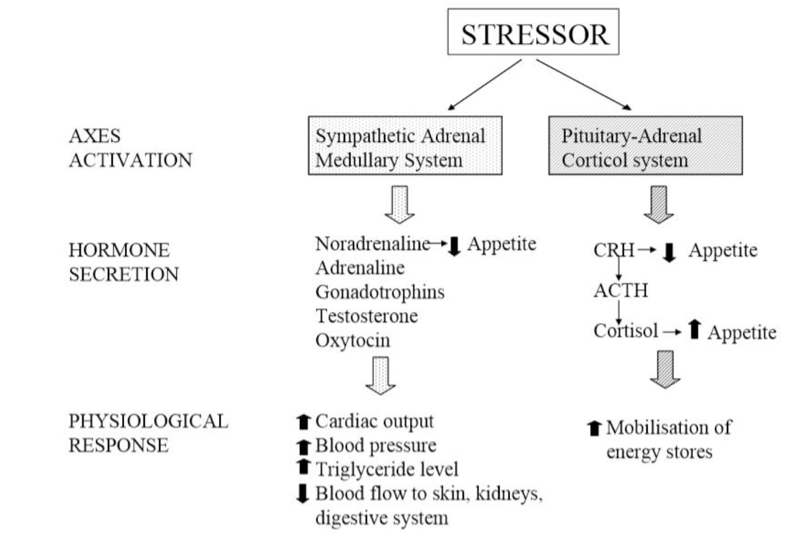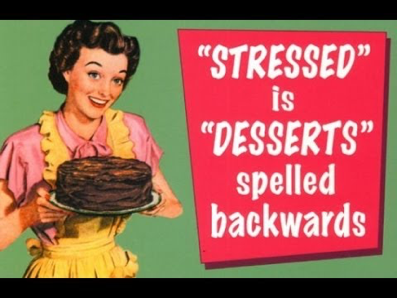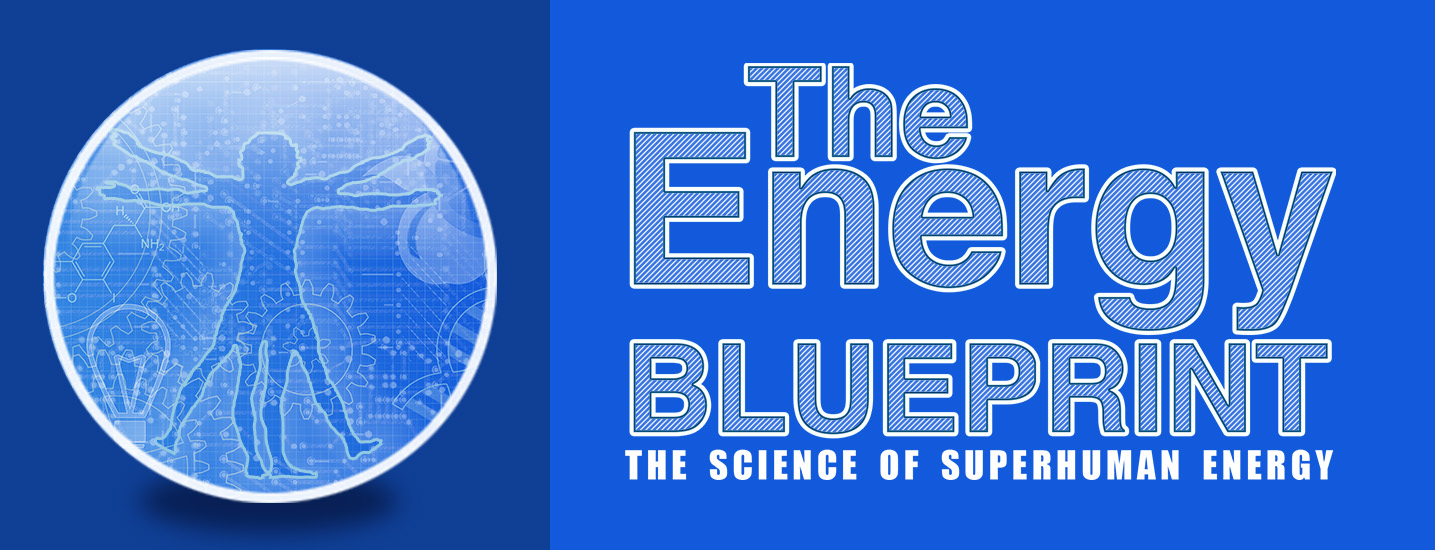The most ignored causes when your results are lacking – Part 1: Stress
Today, it's becoming increasingly trendy to throw around the term "living a balanced lifestyle" without actually defining it properly. It shouldn't imply an incessant glorification of "YOLO" where you one moment are rushing through a Crossfit-WOD so intense that you're bleeding out of your ears, and in the next you're throwing up brownies and tequila after being smashed out of your mind all weekend.

Facetous, I know, but it isn't too far from what I see these days in the fitness sphere.
This a major improvement from eating broccoli, rice and dry chicken six times a day and otherwise trying to find The Optimal Program, but the pendulum tends to swing a little too far in the other direction sometimes.
I'm probably one of the (if not the biggest) defenders of a lifestyle-based approach, but when something doesn't work as expected, we also tend to blame single factors.
The wrong exercise or execution of it, low carb or sugar, saturated fat or vegetable oils, heavy metals in food, parabens in plastic and cosmetics, stress during the week, stress during the weekend, stress during Christmas or Eastern holidays….
How can I handle all that family time and its mandatory feasting, without ending up as an audience favorite of The Biggest Loser contest?
The answer: There is no single solution or prescription that is going to make your life perfect.
In the middle of all of this, you should ask yourself: What is perfect? And who gets to decide the definition of perfect? And why do you change the definition the closer you get to it?
It all ends up with you spending your life chasing something you'll never achieve because you don't know what it means or because you always change the definition of it.
Unfortunately, I'm not going to give you to the recipe on how to be happy in this article, but watch this TED-talk for some pointers – and I will tell you something about how your lifestyle and how your APPROACH to this lifestyle can affect you.
Stress – Negative, but Not for Everyone, All the Time
The effect of stress on recovery is more comprehensive than you think. When you live a very stressful life, you'll die sooner – let's start there. Intuitively, you know this, but you're most likely underestimating this effect.
Cortisol is one of the primary stress hormones, which influences the effect of many other hormones. This is especially apparent through symptoms like chronic fatigue syndrome/ME, exhaustion and post-traumatic stress syndrome (PTSD). We think of these as psychological phenomena, but chronically increased cortisol can disturb the central regulation of other types of hormones, that will affect your whole body.
Somewhat of a chicken-or-egg paradox going on here, but cortisol can be said to be the primary link between your psychology and your physiology.
Stress and Training Results
Hollander et al. (2013) did a study on the effect of academic stress among students. The students who were extremely stressed increased their leg press less than the ones who weren't experiencing as much stress.

The extremely stressed group also put on more bodyfat and reduced the cross-sectional area (CSA) of their legs (which indicates muscle loss), while the low-stressed group lost bodyfat and increased their leg CSA.
This study included both men and women, and the researchers couldn't find any differences between sexes.
Other research confirms that psychological stress reduces strength gains, meaning that the speed of recovery after a specific strength workout can double from 24-48 hours to 72-96 hours (which would make high-frequency training impossible). Other studies show that wounds require 40% more time to heal under extreme stress. Another study found that the risk for injuries doubled in periods of high academic stress in football players, and that this stress could play a more significant role than the physical stress from training.
Stress in the right dosage can increase your performance, so even if you feel nervous, it could often mean that you're going to do better when you face a challenge.
Stressed people need to have a lower training frequency and/or training load to recover, and in many cases, to get any results at all.
Stress and Food
There is something called "healthy stress"—positive stress or eustress. This is an increase in cortisol that is functional and something positive. When you work out, cortisol mobilizes energy from energy substrates (fat and glycogen), so that you can continue to work out and recover afterwards. This mechanism also suppresses inflammation and keeps the body functional during and after training. This illustration sums up how cortisol and eustress are linked.

Like almost every physiological process, and like the tale of Goldilocks and the Three Bears, too much or too little is usually destructive, whereas "just enough" is positive.

Sympathetic dominance, or "fight-or-flight" refers to acute stress, and this will suppress your appetite. You don't care about food when you're busy or engaged in something stressful, so hunger during a workout is an obvious sign that you're not in the "zone" or "flow state" as Mihály Csíkszentmihályi has named it.
Chronic stress, however, is going to increase the appetite. More specifically, it makes you self-medicate on food—appropriately called "comfort food." People vary in how prone they are to "comfort eating," depending on how much cortisol they secrete. Food stimulates the production of dopamine, serotonin, and opioids—substances that naturally gives you a rush and a feeling of happiness. Food generally stimulates parasympathetic dominance in the nervous system, the "rest and digest" mode.
Carbohydrates can under certain circumstances fight stress by increasing the production of insulin. Insulin inhibits cortisol directly and increases branched chain amino acids (BCAA) in our brains, so that the amino acid tryptophan can easily cross the blood-brain-barrier and then convert into the neuro-transmitter of happiness—serotonin. The preference for high-carb food has also been documented to be associated with a lack of sleep.
The fact that so many resort to chocolate and candy under stress is actually a cultural thing. Before we knew what this was, we ate the sweetest foods that nature could offer at that time: fruit, berries, and honey.
Unfortunately, comfort eating doesn't work.
One of the most basic concepts of human psychology is that we continuously seek to feel better by using different reward strategies, and this has a tendency to get priority over health and body composition. Still,the relationship between emotions and obesity is too complex for us to say that it's all about rewarding ourselves. And as Tremblay et al. (2015) talks about in this excellent article, the feeling of satiety and satisfaction that we get when we eat is regulated by these factors:
- Sensory and cognitively: taste, smell, consistency, and expectations about the reward, based on earlier experiences.
- Amount: How much the amount of food stretches the stomach, the macronutrient distribution, how much calories there is in a meal, the micronutrient content, and how food affect the microbiome (bacteria in the intestines) and the other way around – how healthy the microbiota is will affect your food intake and how you digest it.
- Energy status and energy balance: calories in and out, insulin, metabolism, amino acids, glucose, nutrient partitioning, fat, and muscle mass.
The food industry knows how to manipulate this by increasing palatability (combinations of sweet, salty, fatty, sour and different additives that stimulate our appetite) and by making ads for their products more visually pleasing. There is, however, no doubt that humans as a species are unique when it comes to our appetite not being regulated by physiological needs only, but also by psychological factors.

There is obviously nothing to be gained from comfort eating. It's a short-term fix for happiness, but it rarely (never) solves the underlying problem. It's better to resolve the external stress with better planning, and the internal stress by using various stress management strategies.
A good way to separate emotional hunger and cravings from actual physical hunger is to consider if you would like to eat a full meal consisting of meat/chicken, potatoes, rice, vegetables etc. or if the only thing that's going to help is ice cream and chocolate.
Perhaps a little silly, but this is actually a simple method that's going to tell you about the underlying issue. It's up to you how you're going to solve it when you know the answer. (YOLO?) But don't fool yourself, if you don't want anything but ice cream you are seeking external stimuli to calm down internal turmoil, there is no physical need for those calories.

Planning
There are hundreds of books and guides on how to plan your day better, but Kevin Kruse has recently interviewed over 200 people who are successful in what they're doing, including seven billionaires, 13 Olympic athletes, and many skilled entrepreneurs. A simple question provided many interesting and educational responses.
What is the Secret to Being Productive?
- Only focus on one thing. Ultra-productive people know what their "most important task" is, and work on that for 1-2 hours every morning, without any distractions. What task is going to have the largest effect on how to reach your goals? This is how you should start your day.
- They don't do to-do lists. Instead, plan according to your calendar. Only 41% of the things on a to-do list is going to be done. All of these undone tasks lead to stress and sleep deprivation because of what's called the Zeigarnik effect, which mainly means that tasks that are written down are going to stay in your head until you've finished them. Extremely productive people put everything on their calendars, and do them when it's time to do them. And no, this doesn't mean that you're going to fill your calendar with so many tasks that you, in reality, are going to need 100 hours a day to get everything done.
- They're always home for dinner. Kevin first learned this from Intel's Andy Grove, who said: "There's always more that has to be done, that should be done, and that could be done." Extremely successful people know what they value the most in life. Work—yes, of course—but also everything else that really matters. There's no right answer here, but these other values are for most people: family time, exercise, and the ability to give something in return. They have consciously and strategically divided their 1,440 available minutes per day on every area that they value the most, and then they stick to it—instead of filling their calendars with every possible thing they can think of, just because they can't handle being alone with their thoughts.
- They use a notebook. Richard Branson has many times said that he wouldn't be able to build Virgin without a notebook, which he brings along wherever he goes. In one interview the Greek shipping mogul Aristoteles Onassis said: "Always bring a notebook. Write down everything. It's a million-dollar trick they don't teach you in school!" Ultra-productive people relieve their minds by writing down every important thought they have. There's something special about writing something down physically that makes it easier to manifest and to make room for other thoughts in your head.
- They check their e-mail only a couple of times per day. Ultra-productive people don't check their e-mail or social media constantly throughout the day. They don't check every vibration or sound to see who has requested their attention in their inbox. In the same way, it would be disrespectful if someone followed you around all day asking for your attention every fifth minute, right? Instead, like everything else, they plan a time to check their e-mail fast and efficiently. For some, it's only once a day, and for others who normally get many e-mails, it is every morning, afternoon and evening. (I, personally, don't think the evening is advisable, then you're only going to be thinking about it once you go to bed).
- They avoid meetings as much as possible. When Kevin asked Mark Cuban to give his best productivity tips, he replied: "Never accept meetings unless somebody is writing a check." Meetings are notorious time thieves. They start late, have the wrong people in them, they go on endlessly without a real topic, and they go far beyond the originally scheduled times. You should avoid meetings whenever you can, and you should set up fewer meetings yourself. And keep it short and concise if you need to have one. I'm obviously not talking about social meetings with friends or going on dates. You'll have more time for this when you free up time from unnecessary meetings. In Norway, we have a certain "meeting illness" where it's almost a mandatory company policy to have a meeting about every minor detail that could've easily been solved through e-mail communication (we have started using Slack in MyRevolution.no where I work part-time as the Product/R&D Manager).
- They often say No. "The difference between successful people and extremely successful people is that the extremely successful say No to almost everything," the billionaire Warren Buffet once stated. And if something isn't "Fuck yes" then it's "Fuck No". Remember, you only have 1440 minutes available in one day. Don't give them away recklessly. You may have created an illusion of everyone having high expectations for you all the time, but you should stop and consider how true this really is. If you disappeared for the next 6-12 months, do you think the world would go on, and would all these people solve their problems and tasks on their own? It can be both scary and relieving to realize that you're not as important as you think. Another perspective is that you should demand the same respect for your time of the people you're going to be around, as they expect you to give them. This means that not anyone should be able to waltz into your life and expect you to drop everything you're doing just to stimulate their needs, whenever it suits them. If you feel that you have to do this to be validated or liked, then my advice is to carefully assess the people around you and whether they should really be in your inner circle.
- They follow the 80/20 rule, also known as the Pareto Principle. In most cases, 80% of the results come from only 20% of the activities you're doing. Ultra-productive people know what activities are going to give the best results. Focus on these and ignore the rest. This is also closely linked to number 7 on this list.
- They delegate tasks to others. Ultra-productive people don't ask the question: "How can I do this task?" Instead, they ask: "How can this task be done as efficiently as possible?" You have to let go of the need for control so that you can prioritize what you like the most and what you know best.
- They start the process instantly, they delegate tasks, or they place a task where it belongs in their calendar for future execution. How often do you read an e-mail and then save it for later? Extremely successful people strive to attend to tasks immediately. If it takes less than five or ten minutes, do it now. This reduces stress since it won't be in the back of your head all day long, and it's more effective because you don't have to read or evaluate over and over again. If it's something you can't do or don't want to do yourself, read number 9 again. If it's something you need to do, but can't do right now, read number 2.
- They practice a consistent morning routine. Kevin's biggest surprise, while he was interviewing 200 extremely successful people, was how many of them wanted to share their morning ritual. They nourished their body with water, a healthy breakfast, easy workout/activity, and nourished their mind with meditation or prayer, inspiring reading or journal writing.
- Energy is everything. You can't create more minutes, but you can increase your energy by creating more attention, focus, and productivity. Extremely successful people don't skip meals, sleep, or breaks in the hunt for perfectionism or more of everything. Instead, they look at food as fuel, sleep as recovery, and breaks as possibilities to recharge so they can have an even bigger benefit of the time they have available. As some of you might be aware of, I worked with Ari Whitten when he developed The Energy Blueprint (click for free video training), which goes deeper into the scientific evidence of maximizing your energy levels.

Stress Management
Stress managing strategies are classified as either passive/evasive or active and proactive.
Many spend their lives being passive and avoid dealing with situations or emotions. Instead, they ask others to help or validate them (social distraction), or they seek out various things for short-term relief or distraction like comfort eating, alcohol, drugs – or imagining they are living someone else's life through movies or reality shows.
You won't get rid of the problem if you ignore or postpone it.
Active stress-management is – not surprisingly – the most effective strategy, and this means that you deal with or eliminate situations or feelings or the resulting emotions that occur. By constantly practicing coming up with solutions, your brain will become a problem-solving machine vs. a problem-oriented robot.
You often hear psychologists emphasize emotionally focused stress management: accept responsibility, focus on the positive sides, seek social support and so on. This could be sufficient for some, but it's still just a Band-Aid compared to dealing with the root cause of the issue.
- Fight with your partner? Talk about it, without being confronting or accusing. Recognize and listen so that you understand how the other one is feeling, find an amicable solution that both can accept, and be prepared to give to get something back – rather than expecting something up front before you're willing to give something back.
- Trouble at work? Talk to your colleague or boss. Present the situation concisely and based on as much information as possible, without getting too emotionally involved.
- An unexpected bill? Talk to the creditor and ask for a deferred payment or an installment plan. The bill isn't going to disappear just because you haven't opened it. It'll grow, and in a worst-case scenario, a lack of payment will result in you losing your credit rating. Deal with it, it's just a bill after all, and as a member of society, you have to expect many more of these in your adult life.
When you handle the problem immediately, you take advantage of the acute stress reaction. This makes you think clearly and with a better chance to figure out the necessary tools or resources, motivate you to follow through on the plan, and mobilize energy to get you through to the other side in one piece.
And sometimes, the stress you experience today may seem important, but that's only because you are so focused on the moment.
The philosopher Massimo Pigliucci, author of the book How To Be A Stoic, describes how he used Google Street View and Google Earth to handle anxiety, and I urge you to try it:
Search up your home address or your current location. Zoom until you get down to Street View.
This is you and your current problems.
Now start zooming out. First the satellite view of where you are now (kinda scary how detailed a picture taken from space can be, right?). Then the block or neighborhood. Zoom further out and you are at city level. Then the county you live in, the part of the country, the country. Zoom further out and you are now at the part of the world you reside with your problems. Zooming out and out, until you see the whole planet and solar system (if you use Google Earth).
Notice how this feels—what does it do to you and your seemingly-important problems?
If this simple exercise doesn't help, it may help you to simply reflect on your past. Just with an important twist: Realise that every single problem you've ever had, is currently solved. You managed to handle every heart-wrenching crisis, in your own way – for good or for bad.
The point being that every single disaster, problem or concern eventually and inevitably had to give up, and that thing you are worrying about now is probably not that big of a deal when you consider it from that perspective.
Many of us tend to live in a constant state of anxious anticipation of the next thing that can go wrong, and some of us are better at it than most. Always expecting the worst possible outcome may lead to maladaptation and waste of precious resources.
If you consider the worst possible scenario and the best possible scenario – what really ends up happening is usually closer to the latter than the former.
The usual Zen-Buddhism perspective of just being "present in the moment" can sometimes be hard to put into practice. I find it easier to use the above-mentioned strategy of reflecting on your past and already-handled problems to realize that your anxiety is most likely unjustified.
Stress is bound to happen, but you should train yourself to control it and focus it.
An effective stress management strategy is to organize your day into high-stress and low-stress periods. Stress should follow your biorhythm. Most people think of their periods of stress spread over the work week, where they are chronically stressed or depressed Monday through Friday, while weekends and holidays are the time to relax or go into total hibernation because the stress has been accumulating for too long.
This is wrong.
What You Can Learn from the Fastest and Strongest on the Planet
Research on both animals and elite athletes shows that they experience less stress than the average person. They are more calm and balanced (parasympathetic dominance), but they become more excited during periods of stress (sympathetic dominance) – like hunting, competition or training.
They have the ability to hide in a bush (animals, not athletes), or to go up to a barbell loaded with hundreds of kilos in an almost hypnotic state (athletes, not animals), and then maximally activate the stress response so that their bodies can mobilize energy in a few seconds or even milliseconds of optimal performance, and then unwind.
Stress is intermittent, not chronic.


Two lionesses ready for action. The top one can be tempting to cuddle with, but could kill you without warning. The bottom one can, incidentally, also be tempting to cuddle with, and could kill you with no warning—during PMS.
If you have a regular nine-to-five job, this usually means that the first part of the day is high-stress, and workouts should happen sometime during this part of the day.
When you get home, relax.
Turn off your phone and/or Wi-Fi-connection.
Those of you who are self-employed or freelancers need to be more conscious of your biorhythm because your office is often your home.
I recommend having your own room in the house where you work, and even though I'm not always the best at this myself, I strongly advise that you follow the 12 point list in the previous chapter on planning.
Implement consistent routines, and restrict the times you are checking your inbox—and if you do, respond immediately or have workflow strategies that allow you to archive it for later attention.
I prefer to work out between 12-2 p.m., but this is just a personal compromise—I have better workouts, but it disturbs my workflow.
If I work out after 4-5pm, I'll be able to go home and spend rest of the evening eating, relaxing and nourish my malnourished social network—but then I'll also be more exhausted, and I won't get as much out of my workout at that time.
So I have split my day up into two work phases where I'm also the most productive: 8-11am and 3-6pm.
I am better at analytic work (so looking at client's progress reports, answering e-mails etc) whereas I find myself more creative in the afternoon (which is when I'm writing articles such as this one).
You should track your own ups and downs for a few days, being aware of when you are the most focused, energetic, creative and so on. Tailor your daily routine around your peaks as much as practically possible. I obviously realize that this isn't always possible for a lot of people, so just do the best you can.
Although it has been shown that chronotypes can be reset with proper management of light-dark cycles and even meal timing (as I will cover in part 2), this is also the premise of Michael Breus' book The Power of When: Discover Your Chronotype–and the Best Time to Eat Lunch, Ask for a Raise, Have Sex, Write a Novel, Take Your Meds, and More
Meditation
I've been through everything from TM/Transcendental (mantra-based) to Reiki and Mindfulness meditation, and I can whole-heartedly say that meditation is one of the best things you can do for stress management.
On the other hand, I have to admit that I still don't have consistent routines, and I go through periods where I "forget" it. Just by writing this article, I am reminded that this is something I need to pick up again.
Many studies on mindfulness are unfortunately not very good, but there are still some convincing studies. Meditation is a "reset button" for your brain. The reduction in anxiety and depression has a convincing scientific background. It doesn't work as well for everyone, but the only way to find out is to try it out—and like everything else you have to take into account that you won't experience all the benefits the first time you try it. You need training to become good at meditation, just like lifting weights.
Mindfulness meditation is focusing on something that doesn't cause an emotional reaction, like an object, your breath, or a so-called "body scanning" where you're consciously aware of tension and relaxation in your head, neck, chest, back, hips – and further down your body all the way down to your fingers and toes.
It's easier to do the training/meditation in a quiet environment or with earplugs, with your eyes closed, in a relaxed position sitting up straight in a chair or on the floor. Bonus point if you can do it in a Lotus-position.

It can be tempting to lie down, and this is fine as long as you can stay awake. Apps like Headspace and Calm give you a guided meditation for free, and you have to pay to get the longer and more comprehensive meditations.
Even though you can argue that meditation could be seen as a passive stress-management strategy, it's still proactive considering you will be in a better shape to handle stress and solve problems more rationally with a clear vs. cluttered mind.
Nature Calls
It may sound odd, but it's scientifically documented: Exposure to nature – to the mountains, the sea, the forest and the beach reduces stress in different contexts (2, 3, 4). Exercising outside is considered as requiring less effort and is subjectively less challenging. Even rates of cancer are lower in greener areas.
It's obviously not always practical, even though it's desirable. Fortunately, something as simple as indoor plants and flowers reduces your stress levels, and if you have a small garden nearby, it is incredibly de-stressing to plant some seeds. Just be careful where you get the seeds from.

Siggy found a lot of pleasure in his new garden. The parts of it he can remember, that is… (Hint: This plant goes by the name Mary Jane).
Invest in some plants. See if you can get a few fresh breaths of nature to/from work or the gym, even though it's a detour.
Even using a bedside clock or app on your phone with birdsong or other nature sounds is a better way to start the day than bells and screaming alarms.
Here in Norway, we are lucky to have nature all around us, and the impact it has on overall life quality can't be understated. Even with our ridiculous taxes and rules enforced upon us, we have our mountains, fjords, and forests that keep us just sane enough to tolerate the government sticking their hands in our pockets at every opportunity they have.

You'll be surprised at how problems and stress that used to be so unbearable and insurmountable in your mind, appears unimportant and irrational when you get outside. Or you'll find a workable solution spontaneously and almost magically once you get some sunlight and fresh air.
Another bonus is that the sunlight and daylight are essential for us to keep up a good biorhythm, and this, activity and sleep quality are some things we'll take a closer look at in the next part.
In part 2, we'll take a look at Biorhythm and Lifestyle, and you'll get an understanding of things you never could imagine had such a dramatic influence on your health, mood, and performance.
Did you enjoy the article? Please share it on Facebook by clicking this link.




No comments:
Post a Comment